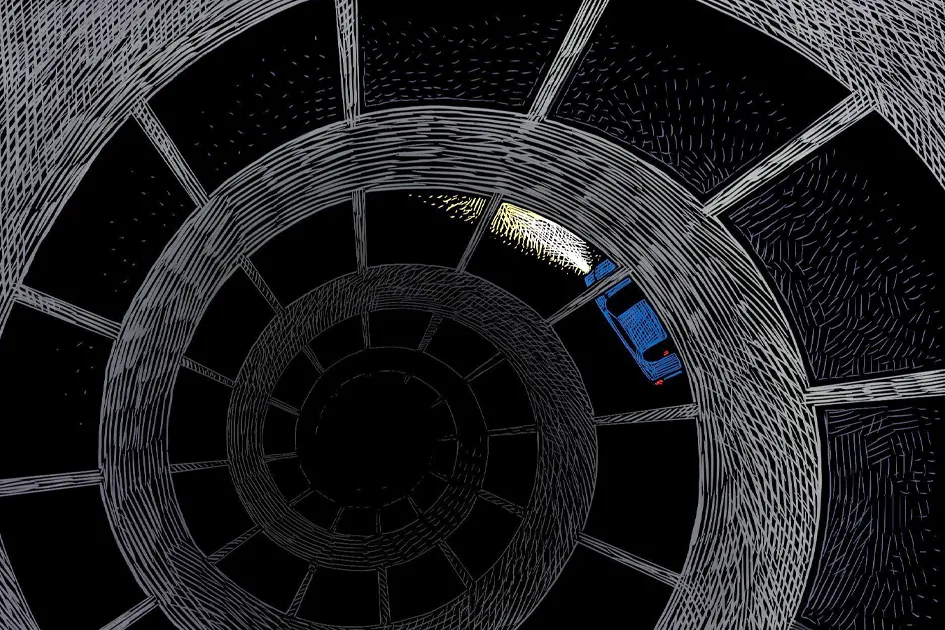Aren’t you glad God showed up today?” the worship leader offered after he finished his set.
I wondered. Was there ever a question of that happening? Does God repeatedly hit snooze?
Really the question that Sunday wasn’t whether the omnipresent and omnipotent Almighty would “show up,” as if He were an unreliable 13-year-old. The question is, as it always is on Sundays, “Would God’s people show up?”

This vibe, repeated often in evangelical worship, seems to communicate the idea that Christianity was recently invented, and as such could be snuffed out by a lack of prayer or through halfhearted singing. As if the work of God in the world were a fledgling enterprise held together by ingenuity and grit.
But even a passing glance at history shows us that God has shown up among His people throughout human history. He showed up in Genesis as the Creator of all that is. He showed up to Abraham, to Moses, to Israel, and to the prophets. He showed up, after 400 years of silence, in a used cattle stall in a backwater Palestinian village. He showed up to 500 witnesses after His resurrection and in Holy Spirit power at Pentecost. And He’s been showing up, through the Holy Spirit, in the body of Christ for 2,000 years.
The Deposit of Faith
The modern evangelical movement, born out of a resistance to the allegedly “stuffy” and “lifeless” tradition of the mainlines and sustained by an emphasis on personal salvation, often seems disconnected from the great tradition of church history. But at a time when community and relationships are most fractured, when the culture is pressing in on the church, a reconnection to the story of orthodoxy might just be what we need.
At a time when community and relationships are most fractured, a reconnection to the story of orthodoxy might just be what we need.
This idea—that the faith we proclaim on Sundays is a deposit passed from generation to generation—is a concept found throughout Scripture. The people of Israel were often encouraged to retell their story of salvation to their children and their children’s children. And the prophets’ rebuke to God’s people often was grounded in a failure to remember their own history. In the New Testament, we find Paul urging his protégé Timothy to hold fast to the things he has been taught and to teach them to others (2 Tim. 1:13). Likewise, Jude describes Christianity as “the faith which was once for all handed down to the saints” (2 Tim. 1:3). In other words, Christianity is not simply a feeling, or something manufactured on Sundays, but a reality: both a body of truth gifted to us by the apostles and passed down through church history, and a story.
We often tell each other that we are not alone, because we have brothers and sisters in the next pew, in the next town, or across the country who share our precious faith. But we are also joined by “so great a cloud of witnesses” who have gone before us (Heb. 12:1). Their lives, their stories, their writings are a reminder that the same God who was faithful in the first century and the fifth century and the 16th century is faithful in the 21st. What’s more, their testimonies are the sinew that connects modern Christians to the apostles, and the apostles to the saints of the old covenant.
I wonder if perhaps the angst we feel, as American believers, over changing cultural realities is due in part to our ignorance of these connections and the many centuries of church history that precede our era. We really do feel, I suspect, that the entire project of Christianity rises and falls with our own competence. Because we don’t know our full story, our family story of God’s faithfulness, we tremble at lesser gods and whimper when we should worship. Imagine, though, if we recovered a renewed love for those who have gone before us, and for the great moments in history that have shaped the church.
Any Given Sunday
What would it look like for our worship to drink a little more deeply from the well of church history? We might start in subtle ways by adding recitation of the major creeds to our worship services. Forged in the important theological battles of old, these statements are not inspired by the Holy Spirit, but they form the thick scaffolding of Christian orthodoxy. They inform what we believe and why we believe it.
Christianity is not simply a feeling, but a reality: both a body of truth gifted to us by the apostles and passed down through church history, and a story.
We might also introduce, in our preaching, the stories of martyrs, great Christian heroes, and key movements in the past. We might, from time to time, in our prayers, thank God that we stand on the shoulders of those who’ve gone before. We might remind ourselves that our conversion narrative is but one thread in the grand and glorious quilt of God’s redemptive story. And when we baptize a new believer, we should instruct him that not only is he newly immersed into a body of believers, present and currently alive around the world, but also into the stream of God’s people throughout history.
Of course, we shouldn’t let our churches turn into museums where we mindlessly venerate the dead and shuffle around in meaningless customs. But we also shouldn’t make our worship experience so modern and relevant that it bears no resemblance to what believers in third-century grottoes and 16th-century house churches experienced. When partaking of the bread and the cup, we should remind ourselves that we’re participating in a feast celebrated by our first-century family, who are connected to us by blood—Jesus’ blood.
We might find creative and new ways to worship our Messiah, but the faith we express on Sundays is not a new thing, an American thing, or a modern thing. Thankfully, Christianity rests not on the talent and obedience of its adherents, but on the power of the risen Christ. The church gathered is not something created in a lab or at a conference, but the work of Jesus, and it will be sustained by His power through every generation until He returns in glory.
Getty Images/Eyeem


